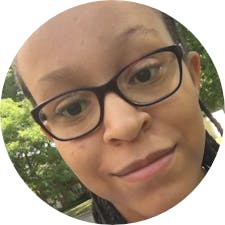Over 80 attendees filed into the List Art Building on Monday to hear author and award-winning sociologist Brittany Friedman discuss her newest book on racial injustice and mass incarceration.
Published in January, her book, titled “Carceral Apartheid: How Lies and White Supremacists Run Our Prisons,” explores the methods employed by the California Department of Corrections “to suppress Black political movements, revealing the broader themes of deception, empire, corruption and white supremacy in American mass incarceration,” according to the book’s description.
The book’s origins can be traced back to Friedman’s experiences in graduate school. She felt that there was a need “to center the voices of people that have survived carceral violence,” Friedman explained during the event, which was sponsored by the Ruth J. Simmons Center for the Study of Slavery and Justice.
According to Friedman, many of the individuals she interviewed for the book grew up in the South during the Jim Crow era. This period, which spanned from the late 1870s to the 1960s, was marked by a series of state and local laws that legalized racial segregation and discrimination.
ADVERTISEMENT
Friedman added that the conceptions of systems of oppression present among African American demographics may have been influenced by the disproportionate incarceration of African Americans during the Civil Rights era in the 1950s and 1960s, particularly in states like California.
“During their incarceration, they’re faced with a series of trials,” Friedman explained. “This includes having faceoffs with neo-Nazis that are incarcerated alongside them … and they’re also experiencing abuse at the hands of correctional officers.”
While some African Americans may have moved to California to escape racist structures in the South, their experiences within the state’s prisons sparked a new perception that these structures were “alive and well” in other locations, Friedman added.
“Carceral institutions are the foundation and bedrock of any social system that is based on racial and ethnic division that uses violence to maintain it,” she said.
Friedman also emphasized that the racial violence that often takes place within prisons — what she calls a “plantation-style hierarchy” that “is the same thing that has been done for centuries” — can also impact the lives of those who have never set foot inside of a prison.
“History repeats itself until we stop it, until we break free from these labels and confines that are reproduced in our social systems,” Friedman said.
Associate Professor of Sociology Nicole Gonzalez Van Cleve, who served as the event’s moderator, believes that Friedman’s work is particularly relevant in our current moment.
“Right now, I think many Americans are deeply concerned about the state of democracy and the rise of authoritarianism, the rise of fascism and the disobedience with the law and our institutions,” Gonzalez Van Cleve said in an interview with The Herald.
“Understanding what’s happening in prisons is an important reminder that the project of democracy has always been precarious for large swaths of people that are poor, that are of color and that are subjected to law enforcement and criminal justice apparatuses,” she added.
Lucia Garrido-Racines ’27, one of the event’s attendees, is currently enrolled in SOC 1116: “Criminal Courts and the Law in an Era of Mass Incarceration,” which Gonzalez Van Cleve teaches. She emphasized the importance of understanding the historical origins of mass incarceration.
ADVERTISEMENT
“The situations that are happening right now did not just spring out of nothing,” she said in an interview with The Herald. “Mass incarceration is part of a broader historical phenomenon.”
Attendee Kele Udozorh ’18 cited his identity as one of the reasons why discussions like these are especially impactful.
“As a Black male … growing up in Texas in particular, one false move and that could’ve just been my story,” Udozorh said. “My community is predominantly Black and their loved ones and everyone around them will, in some way, be impacted” by systems of oppression within prisons, even if they have never been incarcerated themselves, he added.
Udozorh also emphasized the importance of creating works regarding these topics that are accessible to those outside academia.
Get The Herald delivered to your inbox daily.
Accessibility “is the point of writing these works,” they said. “It’s the point of having these conversations because, otherwise, it will simply stay in these institutions.”
While Garrido-Racines is concentrating in education studies, she noted that topics like mass incarceration and racial injustice “permeate all of society.”
“Regardless of what we’re studying … I think it’s important to know about, and to know what our role is in fighting these injustices,” she said.
Friedman concluded Monday’s talk by attributing her hope for the future to the lived experiences of previous generations.
“You look at older generations and you see what they have survived, what they have been through,” she said. “Our ancestors have fought for their humanity and dignity and what we can do is remember them and carry that courage with us.”
“We can create beautiful worlds in the midst of anything,” Friedman said.
Additional reporting by Donna Zhang.

Aniyah Nelson is a University News editor overseeing the undergraduate student life beat. She is a senior from Cleveland, Ohio concentrating in Political Science and Sociology. In her free time, she enjoys listening to music and watching bloopers from The Office.
This post was originally published on this site be sure to check out more of their content.








